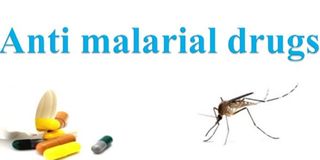NMS runs out of anti-malaria drugs

What you need to know:
- Dr Jimmy Opigo, the programme manager of the National Malarial Control programme at the Ministry of Health noted that “the drug stock out is life threatening at a time when there is high malaria transmission more than any other time in the past years during the same period.”
- At the end of last year, the NMS general manager Moses Kamabare expressed concern over the then looming drug stock outs for both anti-malarial drugs and antiretroviral drugs (ARVs) due to limited funds in their current budget.
KAMPALA. Government efforts to fight malaria that kills at least 320 people in Uganda every day, have been hobbled by the news about the acute shortage of anti-malarial drugs in the country. Malaria is a mosquito-borne disease caused by a parasite.
Public health facilities across the country are expected to suffer shortages of anti-malaria drugs for the February cycle after National Medical Stores (NMS) run out of the essential drugs such as coartem.
Mr Dan Kimosho, the NMS spokesperson confirmed that their stores remained empty after the previous supply cycle in December last year due to the drugs’ budget shortfalls.
“Although our budget for malaria drugs is supposed to be Shs45b for this financial year, government has only given us Shs5b meaning we have a budget shortfall of Shs40b,” Mr Kimosho told Saturday Monitor in a phone interview yesterday. “The coartem drug is used in the first line treatment of malaria are the ones that are out of stock.
He added that: “As we talk now, there are zero anti-malaria drugs.”
Although NMS managers have held several engagements with the Finance ministry, Mr Kismosho explained that none of them has borne fruit “as they[Finance ministry officials] have always promised and we are still hopeful.”
NMS, which is mandated to procure, store and distribute essential medicines and medical supplies to all public health facilities in the country, has got six supply cycles in a year.
Each public health facility is supplied with drugs after every two month.
The last cycle was in December last year and the second cycle is supposed to be in this month.
Mr Jim Mugunga, the ministry of Finance spokesperson said, Finance ministry releases resources as budgeted for by the user departments and that the ministry persistently prioritises the health sector even in the face of “hugely competing challenges.”
“This financial year during the first quota for example, NMS was deliberately frontloaded by 25 per cent while in the second quota, the department had more funds allotted to them standing at about 75per cent of their budget, “ Mr Mugunga said.
He added that: “NMS is aware of some administrative issues related to the third quota which need to be resolved. For us in the ministry of Finance, we did our part and what NMS needs to do, is to explain what happened.”
On Malaria funding, Mr Mugunga explained that it is primarily under Global Fund and government in which ministry of Finance contributes in excess of Shs100b towards TB, Malaria and ARVs under the arrangement, adding that NMS, as experts of procurement of medicinal drugs, have the responsibility to stock up and ensure national sufficiency in collaboration with the sector ministry.
“The ministry of Finance does not prescribe drug purchases priorities...that are not our specialty. We do not therefore expect any crisis with malaria drugs,” Mr Mugunga said.
Dr Jimmy Opigo, the programme manager of the National Malarial Control programme at the Ministry of Health noted that “the drug stock out is life threatening at a time when there is high malaria transmission more than any other time in the past years during the same period.”
“We (Ministry of Health) are doing everything possible to ensure that we save the situation. The two ministers of Finance and Health have met already and there is a commitment to make money available.” Dr Opigo said.
Dr Opigo added that malaria prevalence is still high in 25 districts across the country.
Although the drug stock out has not yet affected them, Mulago National Referral Hospital executive director, Dr Byarugaba Baterana, said that they have remained with malaria drugs that can only take them for three months.
At the end of last year, the NMS general manager Moses Kamabare expressed concern over the then looming drug stock outs for both anti-malarial drugs and antiretroviral drugs (ARVs) due to limited funds in their current budget.
Raising demand
Mr Kamabare, said ever since the Ministry of Health introduced the test and treat strategy for HIV patients, the demand of the drugs has been on an increase yet the budget has remained constant.
“In the current financial year 2016/17, the amount allocated for antimalarial is Shs5.7billion and this is less to cater for the ever increasing number of patients,” Mr Kamabare told journalists then. He explained that funds for Malaria are normally pooled together with those of HIV/Aids.




